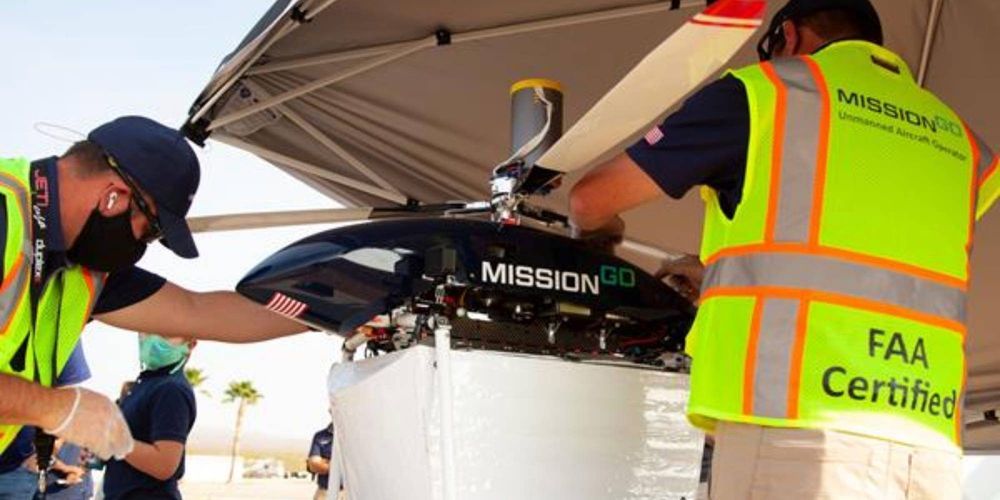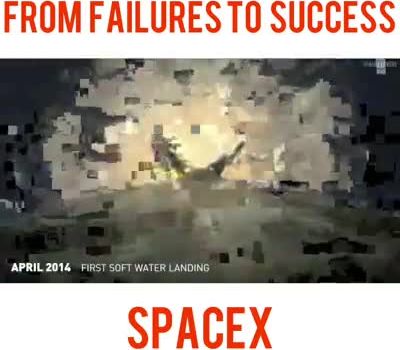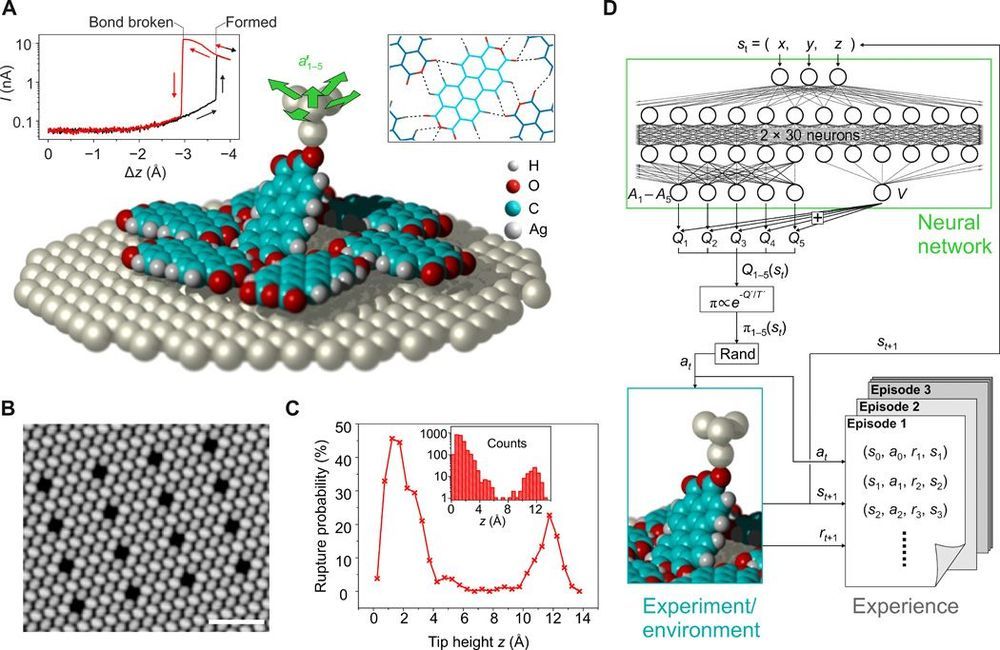The ability to handle single molecules as effectively as macroscopic building blocks would enable the construction of complex supramolecular structures inaccessible to self-assembly. The fundamental challenges obstructing this goal are the uncontrolled variability and poor observability of atomic-scale conformations. Here, we present a strategy to work around both obstacles and demonstrate autonomous robotic nanofabrication by manipulating single molecules. Our approach uses reinforcement learning (RL), which finds solution strategies even in the face of large uncertainty and sparse feedback. We demonstrate the potential of our RL approach by removing molecules autonomously with a scanning probe microscope from a supramolecular structure. Our RL agent reaches an excellent performance, enabling us to automate a task that previously had to be performed by a human. We anticipate that our work opens the way toward autonomous agents for the robotic construction of functional supramolecular structures with speed, precision, and perseverance beyond our current capabilities.
The swift development of quantum technologies could be further advanced if we managed to free ourselves from the imperatives of crystal growth and self-assembly and learned to fabricate custom-built metastable structures on atomic and molecular length scales routinely (1–7). Metastable structures, apart from being more abundant than stable ones, tend to offer attractive functionalities, because their constituent building blocks can be arranged more freely and in particular in desired functional relationships (7).
It is well established that single molecules can be manipulated and arranged using mechanical, optical, or magnetic actuators (8), such as the tips of scanning probe microscopes (SPMs) (9–12) or optical tweezers (13, 14). With all these types of actuators, a sequence of manipulation steps can be carried out to bring a system of molecular building blocks into a desired target state. The problem of creating custom-built structures from single molecules can therefore be cast as a challenge in robotics.




